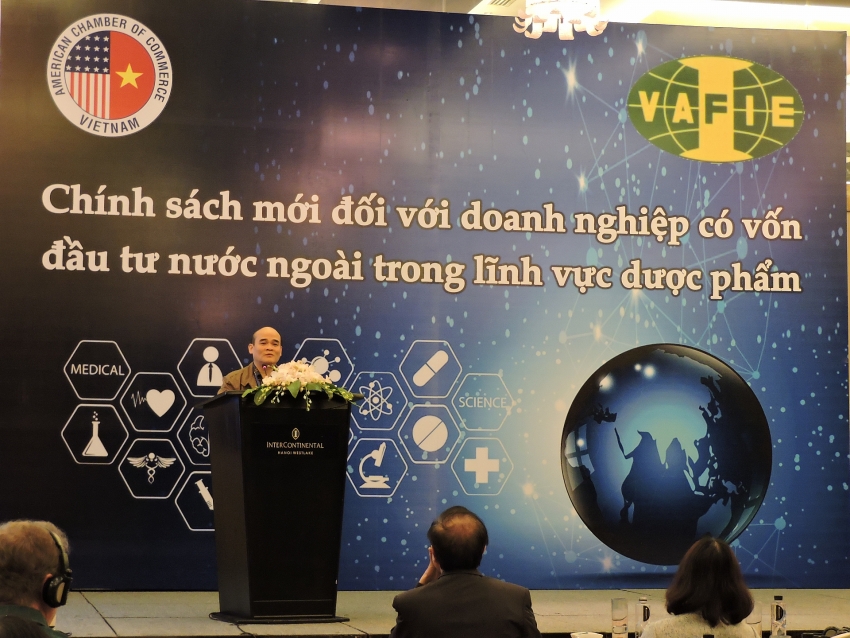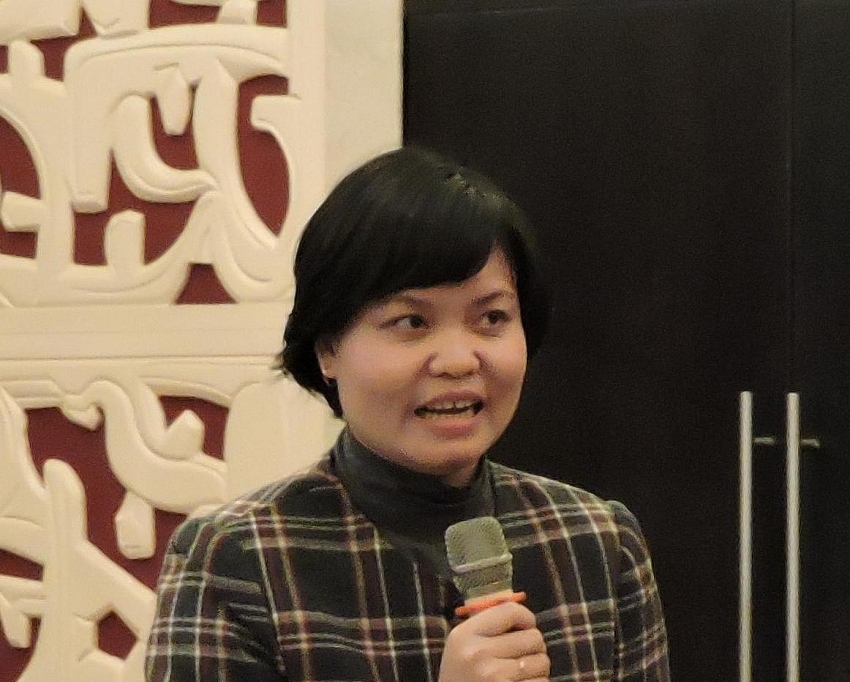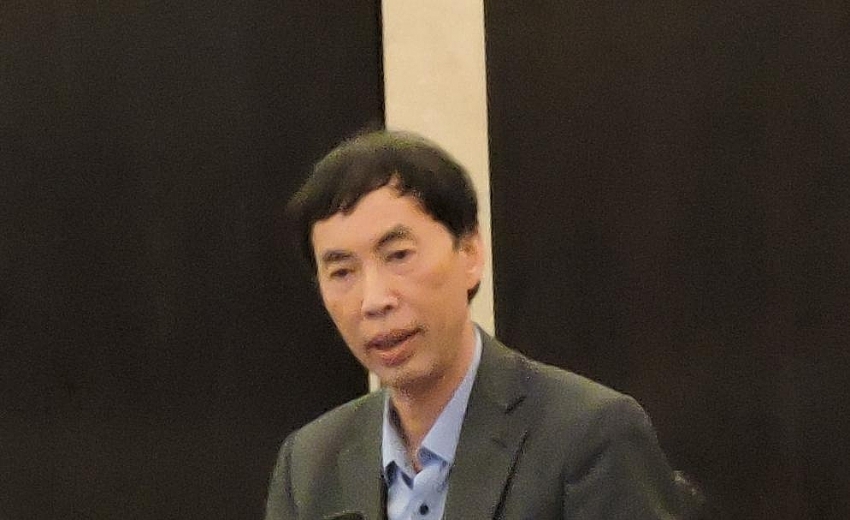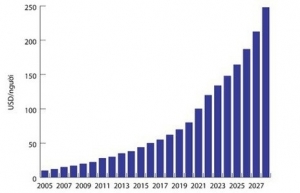Heated debate over new pharmaceutical FIE regulation
 |
| Lawyer Le Net raised issues related to non-retroactivity |
The draft circular to guide the implementation of Decree 54 is being formulated to provide further guidance to Article 91(10).
According to Article 91(10) of the decree, foreign invested enterprises (FIEs) holding import rights but no distribution rights are prohibited from conducting “activities directly related to the distribution of drugs or drug materials in Vietnam.” Distribution is defined by Article 91(10) to include “transporting or providing storage services for drugs/medicinal materials.”
At the workshop on the new policy for pharmaceutical FIEs jointly held by the American Chamber of Commerce in Vietnam (Amcham) and the Vietnam Association of Foreign Invested Enterprises (VAFIE) this morning, Chung Yee Seck, lawyer of Baker & McKenzie, said that according to Dispatch No.9436, the FIEs in question need to adjust their current business model to satisfy Article 91(10) of Decree 54.
Thereby, FIEs had to stop providing drug storage and transportation services to third parties starting from July 2017 and change their business model to that of a drug importing company.
| Vietnam has never licensed FIEs to conduct distribution activities. With this draft circular, FIEs are allowed to import drugs but not distribute them, and Vietnam does not violate any commitments to the WTO. |
Additionally, Decree 54 has retroactive effect on FIEs that are already licensed to provide drug storage and transportation services to third parties and this is a problem under Vietnamese laws.
Article 91(10) noted that if it is applied retroactively and if it will be implemented in a way that suspends or stops the operation of already-licensed FIEs, it could give rise to claims under international investment protection treaties for inappropriate cancellation, resulting in international arbitration.
Thereby, in the draft circular to guide Decree 54, FIEs suggest removing “cannot transport drugs” and to formulate the law to ensure that FIEs have the freedom of negotiation with a local wholesaler regarding the place of delivery, which should not be restricted to the FIE’s warehouse.
 |
| Nguyen Thu Trang, director of WTO Centre and Economic Integration, VCCI |
However, Nguyen Thu Trang, director of the WTO Centre and Economic Integration at the Vietnam Chamber of Commerce and Industry (VCCI), said: “According to the services commitments form of the WTO, Vietnam did not commit to allow FIEs to conduct drug distribution services.
In order to ensure that Vietnam’s regulations are in line with international commitments, the contents of Article 2(3) of the draft circular guiding Article 44(1d) of the Pharmaceutical Law and Article 91(10-12) of Decree 54 need to be considered carefully.”
Trang confirmed: “Vietnam has never licensed FIEs to conduct distribution activities. With this draft circular, FIEs are allowed to import drugs but not distribute them, and Vietnam does not violate any commitments to the WTO.”
“This circular will be applied for FIEs with import rights but no distribution rights. In Vietnam’s WTO commitments, distribution services include transportation and storage. Therefore, if Vietnam does not allow FIEs to conduct distribution services, Vietnam cannot allow transportation and storage services under distribution services,” she added.
On the topic of (non-)retroactivity, lawyer Le Net said that Articles 152 and 156 of the Law on the Enactment of Legal Normative Documents stipulates that retroactivity is not allowed in case a new legislation introduces new legal obligations on actions happening at a time when such legal obligations had not been provided by law. Retroactivity is also not allowed in case a new legislation introduces new legal obligations which were higher than those applied at the time when the actions took place.
 |
| Vo Tri Thanh, former vice director of Central Institute for Economic Management (CIEM) |
In the opinion of economist Vo Tri Thanh, policy-makers should go beyond the country's commitments to the WTO and other partners and establish a more progressive legal framework.
Along with the integration process, Vietnam’s legal system has changed positively in line with economic development and international commitments and practices, which facilitate businesses in general and create a fair business environment for both foreign and domestic enterprises.
 | Vietnam’s six large-scale foreign pharmaceutical firms The massive entry of foreign pharmaceutical corporations, such as Sanofi, Taisho, and Abbott is creating considerable pressure for domestic pharmaceutical enterprises. |
 | Foreign pharma firms seek remedy for concerns Vietnam's recent pharmaceutical policies will be discussed at a forum held tomorrow by the American Chamber of Commerce in Vietnam (Amcham) and the Vietnam Association ... |
 | Who will take control of billion-dollar pharmaceutical market? With hefty experience in distribution and retail, Mobile World, FPT Retail, Digiworld, and Nguyen Kim have been entering pharmaceutical retail, but who will seize control? |
 | Electronic giants setting foot in pharmaceutical retail In order to set foot in the pharmaceutical retail market, Mobile World Group (MWG) has chosen Phuc An Khang as the first M&A target, DigiWorld ... |
What the stars mean:
★ Poor ★ ★ Promising ★★★ Good ★★★★ Very good ★★★★★ Exceptional
Related Contents
Latest News
More News
- VNPAY and NAPAS deepen cooperation on digital payments (February 11, 2026 | 18:21)
- Vietnam financial markets on the rise amid tailwinds (February 11, 2026 | 11:41)
- New tax incentives to benefit startups and SMEs (February 09, 2026 | 17:27)
- VIFC launches aviation finance hub to tap regional market growth (February 06, 2026 | 13:27)
- Vietnam records solid FDI performance in January (February 05, 2026 | 17:11)
- Manufacturing growth remains solid in early 2026 (February 02, 2026 | 15:28)
- EU and Vietnam elevate relations to a comprehensive strategic partnership (January 29, 2026 | 15:22)
- Vietnam to lead trade growth in ASEAN (January 29, 2026 | 15:08)
- Japanese business outlook in Vietnam turns more optimistic (January 28, 2026 | 09:54)
- Foreign leaders extend congratulations to Party General Secretary To Lam (January 25, 2026 | 10:01)

 Tag:
Tag:




















 Mobile Version
Mobile Version